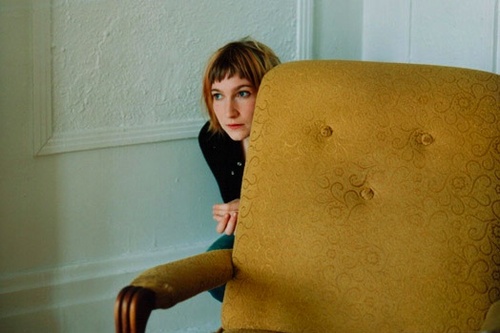
Interview with Sheila Heti
Maisonneuve's newest columnist talks about why she gave up acting, her love of dialogue and her upcoming novel.
Sheila Heti was born in Toronto. She studied playwriting at the National Theatre School in Montreal, and philosophy and art history at the University of Toronto. The author of the story collection The Middle Stories and the novel Ticknor. Her writing has appeared in various places—The Believer, The New York Times Magazine, Esquire and Brick.
In 2006, she received a citation from the City of Toronto, awarded to twelve "cultural mavericks who, through artistic promise, achievement or vision, have enriched the cultural life of this city now and for future generations."
A new novel How Should a Person Be? (Anansi) is forthcoming in Fall 2010.
Amelia Schonbek: How did you decide to write about theatre and acting for your column in Maisonneuve?
Sheila Heti: I was thinking about writing more about theatre and actors … I just had been thinking a lot about what actors know that the rest of us don’t know. I was curious to think about that, and it was because it seemed to me that in this culture everyone kind of becomes an actor, a presenter of themselves, and everyone has people watching them. That sort of what started it, though the column isn’t exclusively about that, but that was the first thought that led to the column.
AS: Do you have some sort of trajectory in mind for the column?
SH: No. It seems to me that the nice thing about a column is that you can write about whatever you’re thinking about at that time. So two months from now I can write about what I’m thinking about then.
AS: You’ve been an actor in the past, and you attended the National Theatre School; has your experience as an actor shaped what you want to write about in this column?
SH: Well, I was not an actor by the time I went to the National Theatre School; I went there for playwriting. But I did act before that, from maybe ten to seventeen, in commercials and little TV shows and plays of course. I think I had always wanted to be an actor—that was the first thing I wanted to be, probably, an actor and a writer.
But it was really clear to me pretty young that I wasn’t a good actor. That’s how I felt—I felt the feelings that somebody who is a good actor would have while acting were not the feelings that I was having, and I kind of thought that meant that I shouldn’t probably continue to be an actor. I never felt like I lost myself in a role, or I never felt like I was anybody other than myself. I don’t know if great actors actually feel that, but I assumed that if I was a great actor I would feel like I was somebody else, and I never did, so I decided to stop acting.
AS: Do you still write plays?
SH: I haven’t worked on a play in many years, no.
AS: It’s interesting that you studied playwriting, though, because in your most recent book, How Should a Person Be? you worked with conversations you’d had with friends and altered the contexts to create a narrative. It seems like a lot of the principles used in writing plays might also apply to a project like that one.
SH: Definitely. The inability to write a play is one of the things that the book is about. And I like everything about playwriting except the fact that it ends up being a play. I love the way that plays move from scene to scene, I love the fact that as I writer of plays one of your main tasks is writing dialogue. I love the fact that it involves real people. So writing this book it was nice because I got to use my friends, which was almost like using actors. I got to use a theatre, which was my life and neighbourhood. It was like I had a theatre but outside the context of the theatre.
AS: The process of writing this book must have been really different from the last one you wrote. Did you enjoy it more? I can imagine that each would have its own challenges.
SH: You’re right in saying that the challenges were different. Of course there was still a lot of sitting alone in my room, because I’m the one who has to write it. But this novel was more rigorous ethically, you know? I was dealing with things my friends had done, and I had to do a lot of checking with them to make sure it was okay that I used certain things. But it was fun, too. I had way more fun doing this book than the last one.
Pick up Issue 36 of Maisonneuve to read Sheila Heti's column "Where Have All the Monologues Gone."
Related on maisonneuve.org:
—My Life as a Ghost
—Interview with Patrick J. Stefano
—Why are Literary Readings So Excruciatingly Bad?
Follow Maisonneuve on Twitter — Join Maisonneuve on Facebook





